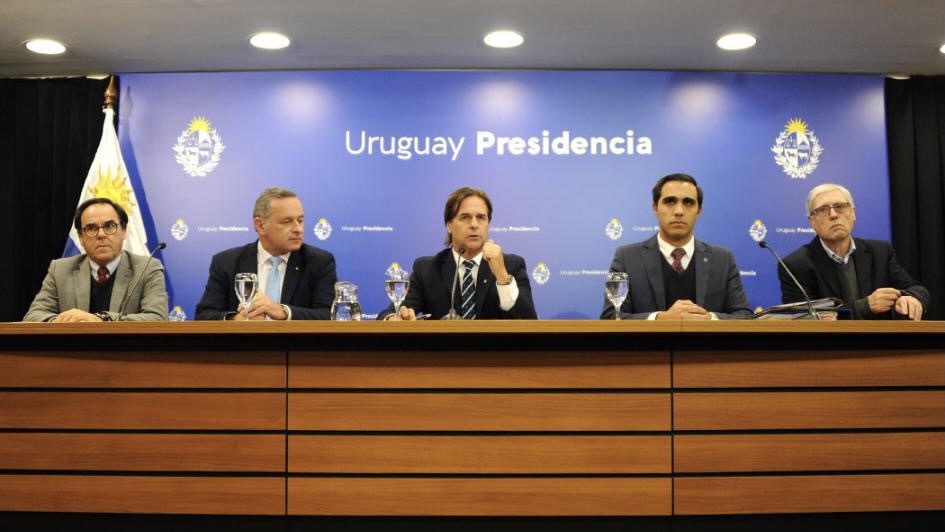Uruguayan President Luis Lacalle Pou, on Monday, June 19, declared a water emergency in the capital Montevideo and the metropolitan area. The department has been facing a severe running water scarcity due to a prolonged drought.
During a press conference, President Lacalle Pou reported that the decision was taken to make “legal processes faster and easier” to mitigate the situation. In this regard, he announced the construction work of a reservoir on the San José river to provide for a new source of drinking water for the capital. He assured that the work on the reservoir and its pipeline network would begin on June 20, and that it would be completed within a maximum period of 30 days.
The president also reported that a special supply of water -without the increased level of sodium and chlorine currently present in the water supplied by the State Sanitation Works (OSE)- would be guaranteed for hospitals and the Child and Family Care Centers (CAIF) and the Child and Adolescent Institute of Uruguay (INAU) facilities.
In addition, the head of state assured that the government would supply two liters of free water to some 21,000 vulnerable households. He also reported that bottled water would be exempted from taxes.
Lacalle Pou explained that the measures announced by the government were based on a forecast with no prediction of rain in the next few weeks.
Regarding the usual supply of water to the houses, the president said that it would continue as it had been, but warned that its quality could deteriorate further.
For the past seven months, Uruguay has been experiencing an acute water shortage due to high temperatures and dry conditions. The water levels at the Paso Severino reservoir, which supplies fresh water to the Montevideo metropolitan area where 60% of the country’s population live, are critically low.
According to the latest information available from the OSE, the Paso Severino, Uruguay’s largest dam built on the Santa Lucía river that stores 67 million cubic meters of water, only has 3.7 million cubic meters of water.
In May, in order to address the shortages, the OSE began taking salt water from the La Plata river, an estuary connected to the Atlantic Ocean. This doubled the levels of sodium and also chlorides for disinfection in tap water.
Following this, the Public Health Ministry asked the residence of Montevideo to “avoid adding salt to food.” Individuals with hypertension, kidney diseases, infants and pregnant women were advised to take precautions and consider consuming bottled water. Days later, the sale of bottled water tripled and its price increased five times.
Residents in the capital have been forced to spend, on average, 300 pesos or USD 8 every day on bottled water. The situation has provoked widespread dissatisfaction in the population.
At the beginning of this month, under the banner of “In Defense of Water,” hundreds of people organized a march in Montevideo to demand greater economic measures to face the crisis caused by the drought. They raised slogans such as “it is not drought, it is looting,” and “water is not sold.”
In February, the OSE banned the use of drinking water for outdoor uses such as watering, vehicle washing, swimming pools, etc.





